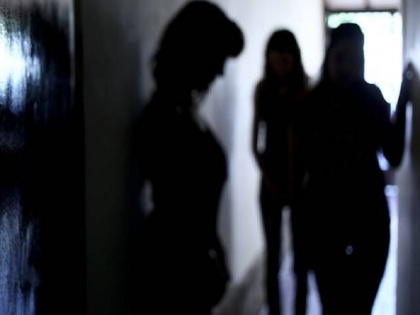Sex Racket Busted in Mumbai: Three Held, Two Women Rescued in Chembur by RCF Police
By vishal.singh | Updated: June 17, 2025 08:22 IST2025-06-17T08:20:39+5:302025-06-17T08:22:57+5:30
The RCF Police have busted an online sex racket operating in the eastern suburbs of Mumbai and arrested three ...

Sex Racket Busted in Mumbai: Three Held, Two Women Rescued in Chembur by RCF Police
The RCF Police have busted an online sex racket operating in the eastern suburbs of Mumbai and arrested three people, including two women. The accused have been identified as Ikbrana B. Abdul Rehman Shaikh, Muskan Azhari Khan, and Farida Sharmulla Syed. During the operation, police also rescued two women who were allegedly being pushed into prostitution. After a medical examination, the rescued women were sent to a women's rehabilitation center.
According to the police, the racket was operating through online platforms where the accused contacted potential clients and arranged for women to be sent to hotels, guest houses, and lodges for sex work. Acting on specific intelligence, the police learned that the gang was active in Chembur and other areas of northeast Mumbai. The accused reportedly operated by responding to client demands and sending women accordingly.
To verify the information, the RCF Police set up a decoy operation. A bogus customer contacted the racket and placed a request for two women. After negotiating over the phone, the accused agreed to send the women to a guest house near Raj Bar in Chembur.
On Thursday evening around 7 PM, Ikbrana Shaikh, Muskan Khan, and Farida Shaikh arrived at the guest house along with two women. As they began negotiating payment with the decoy customer, the police team raided the premises and apprehended all three accused on the spot. The two women brought for prostitution were rescued during the raid. During questioning, the women revealed they were brought there to engage in sexual acts with clients.
Based on their statements, the police arrested the trio and booked them under relevant sections of the Bhartiya Nyaya Sanhita (BNS) and the Immoral Traffic (Prevention) Act (PITA). On Friday afternoon, all three were produced before the court, which remanded them to police custody.
Further investigation revealed that the racket was managed entirely online. Clients would place orders for women, and the accused would arrange for them to be sent to selected locations. After completing the deals, a portion of the payment was forcibly handed over to the women, while the remaining amount was retained by the accused.
Police are now probing whether more people are involved in the racket and if there are links to a larger network operating in other parts of the city.
Open in app